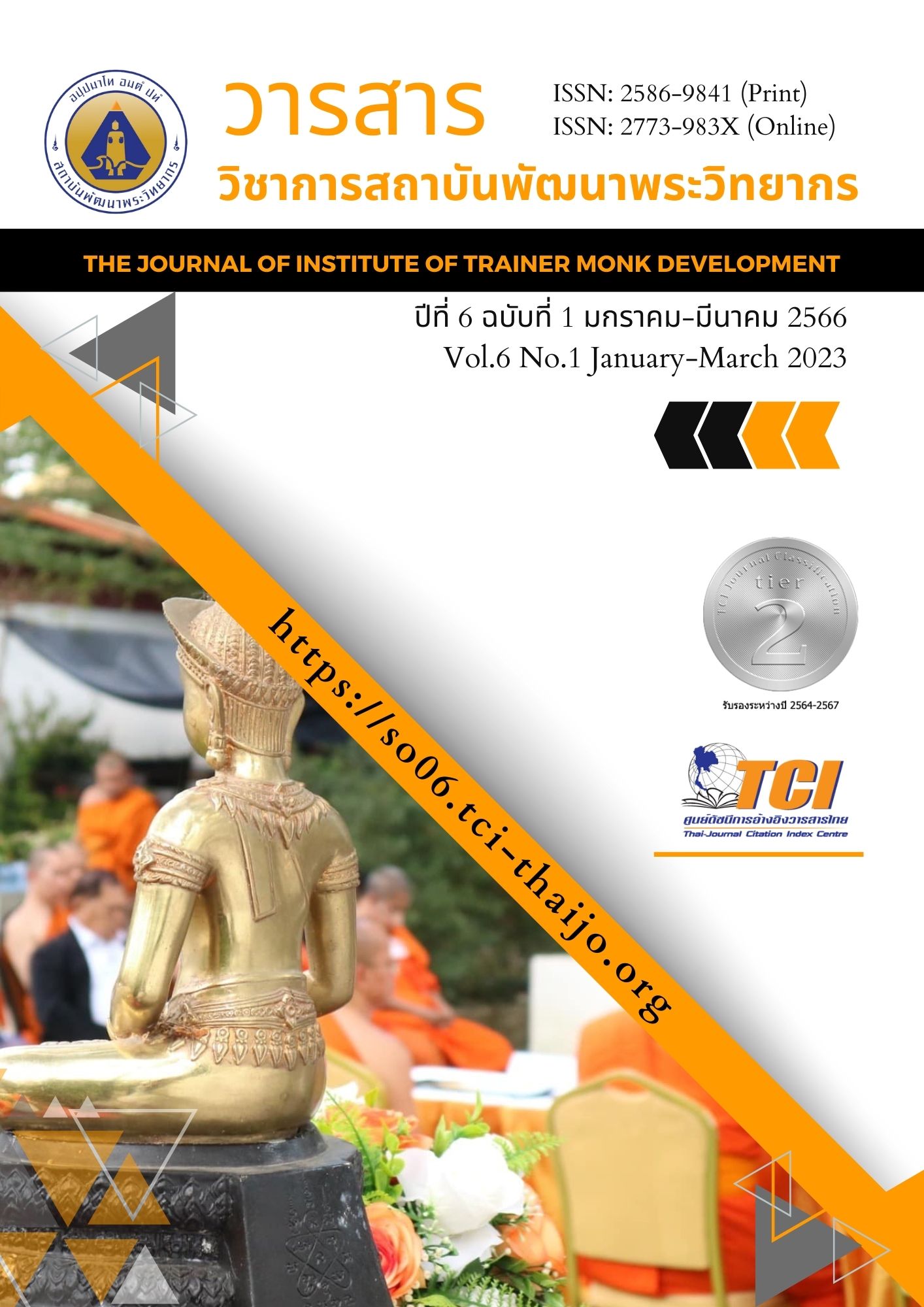The Emotional Intelligence of Administrator and Student Affairs Operation of The Schools Under the Secondary Educational Service Area Office Kanchanaburi
Main Article Content
Abstract
The purposes of this research were to find 1) the emotional intelligence of the school administrator under the secondary education service area office Kanchanaburi, 2) the student affairs operation in the school under the secondary education service area office Kanchanaburi, and 3) the relationship between the emotional intelligence of administrator and the student affairs operation in the schools under the secondary education service area office Kanchanaburi. The sample group were 28 schools under the Secondary Educational Service Area Office Kanchanaburi. There are 4 information providers per school. the total respondents of 112. The research tool was a questionnaire about emotional intelligence and student affairs operation. The statistics used to analyze the data were frequency, percentage, arithmetic mean, standard deviation and Pearson's Moment correlation coefficient analysis.
The research findings revealed the following: 1. The emotional intelligence of the school administrator under the secondary education service area office Kanchanaburi, collectively, was found at the highest level. When considered each aspect individually, 2 were found at the highest level and 2 were at the high level; ranking from the highest mean to the lower mean as followed: self-management, self - awareness, relationship management, and social perception respectively. 2. The student affairs operation in the school under the secondary education service area office Kanchanaburi, collectively and individually, was found at the highest level, ranking from the highest mean to the lower mean as followed: implementation of democracy promotion in educational institutions, promoting and developing students to have discipline morality, and ethics, student affairs administration, operation of the student support system, assessment of student affairs performance and student affairs planning respectively. 3. There was a statistically significant relationship between the emotional intelligence of administrator and student affairs operation in the schools under the secondary education service area office Kanchanaburi at the .01 level.
Article Details

This work is licensed under a Creative Commons Attribution-NonCommercial-NoDerivatives 4.0 International License.
บทความที่ได้รับการตีพิมพ์เป็นลิขสิทธิ์ของวารสารวิชาการสถาบันพัฒนาพระวิทยากร
ข้อความที่ปรากฎอยู่ในบทความที่ได้รับการตีพิมพ์ในวารสาร ถือเป็นความรับผิดชอบของผู้เขียนบทความ และข้อคิดเห็นนั้นไม่ถือว่าเป็นทัศนะและความรับผิดชอบของกองบรรณาธิการวารสารวิชาการสถาบันพัฒนาพระวิทยากร
References
ปวีณา บุศยรัตน์. (2565). “ความฉลาดทางอารมณ์ของผ้บริหารสถานศึกษาตามการรับรู้ของครูผู้สอนสังกัดสำนักงานเขตพื้นทีการศึกษาประถมศึกษาตราด”. วิทยานิพนธ์ ค.ม. (การบริหารการศึกษา). จันทบุรี : มหาวิทยาลัยราชภัฏรำไพพรรณี.
พระพรหมคุณาภรณ์. (2550). กระแสธรรมเพื่อชีวิตและสังคม. กรุงเทพมหานคร: สำนักพิมพ์ธรรมสภา.
รุจิรัตน์ พวงโต. (2560) . “การบริหารงานกิจการนักเรียนของสถานศึกษา สังกัดสำนักงานเขตพื้นที่การศึกษามัธยมศึกษา เขต 3 จังหวัดพระนครศรีอยุธยา”. วารสารครุศาสตร์ปริทรรศน์ คณะครุศาสตร์ มหาวิทยาลัยมหาจุฬาลงกรณราชวิทยาลัย, 6(1), 65-78.
สำนักงานบริหารงานมัธยมศึกษาตอนปลาย.(2552). สำนักงานคณะกรรมการการศึกษาขั้นพื้นฐาน กระทรวงศึกษาธิการ , มาตรฐานการปฏิบัติงานสถานศึกษามัธยมศึกษา พ.ศ. 2560 (ปรับปรุง 2562). กรุงเทพฯ : โรงพิมพ์สำนักงานพระพุทธศาสนาแห่งชาติ.
สำนักงานคณะกรรมการการศึกษาแห่งชาติ. (2562). พระราชบัญญัติการศึกษาแห่งชาติ พ.ศ. 2542 และที่แก้ไขเพิ่มเติม (ฉบับที่ 4) พ.ศ. 2562. กรุงเทพมหานคร : สำนักนายกรัฐมนตรี.
สำนักงานคณะกรรมกราพัฒนาเศรษฐกิจสังคมแห่งชาติ. (2560). แผนพัฒนาเศรษฐกิจและสังคมแห่งชาติ ฉบับที่ 12 (พ.ศ.2560 - 2564). กรุงเทพมหานคร: สำนักงานคณะกรรมกราพัฒนาเศรษฐกิจสังคมแห่งชาติ.
สุทธภา เวชวิสุทธิคุณ. (2562).“ความฉลาดทางอารมณ์ของผู้บริหารกับการทำงานเป็นทีมของครูในสถานศึกษา สังกัดสำนักงานเขตพื้นที่การศึกษาประถมศึกษานครปฐม เขต 2”, วารสารการบริหารการศึกษา มหาวิทยาลัยศิลปากร, 10(2), 145-166.
Daniel Goleman. (2013). Primal leadership: Unleashing the Power of Emotional Intelligence. Boston: Harvard Way, Massachusetts.


